
Datadog Projects
Datadog Agent, Integrations, SDKs, and Tracers
Aside from the projects mentioned in this open source hub, the Datadog related projects that collect telemetry data from Datadog’s customers’ infrastructure are also open source.

Datadog Projects
Aside from the projects mentioned in this open source hub, the Datadog related projects that collect telemetry data from Datadog’s customers’ infrastructure are also open source.
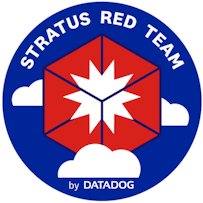
Datadog Projects
Stratus Red Team is a project that allows you to easily reproduce, understand, and detect common attack techniques in the cloud. As a self-contained tool, you can also use it to validate your threat detection logic.
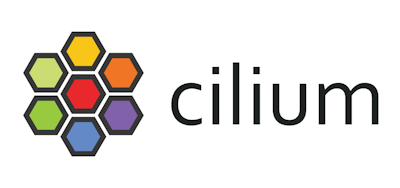
Third Party Projects
Cilium is a networking solution for Kubernetes based on eBPF and part of the CNCF. Cilium is a critical piece of infrastructure in Datadog's Kubernetes clusters and Datadog engineers contribute regularly to the project.
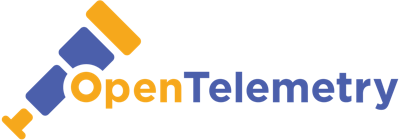
Third Party Projects
OpenTelemetry (OTel) is an open source, vendor-neutral observability framework that supplies APIs, SDKs, and tools to instrument, generate, collect, and export telemetry data (metrics, logs, and traces).
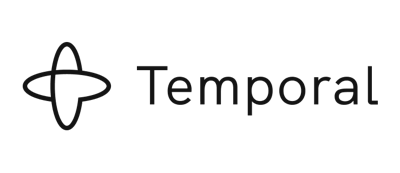
Third Party Projects
Temporal is an open source workflow management platform that helps your application manage complex workflows.
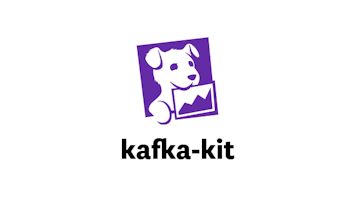
Datadog Projects
kafka-kit is a collection of tools to help managing large Kafka clusters. It helps handling partition to broker mappings, failed broker replacements, storage based partition rebalancing, and replication auto-throttling.
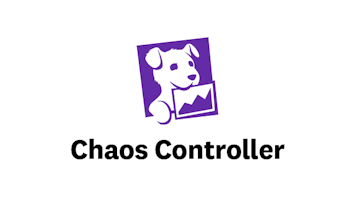
Datadog Projects
The Datadog Chaos Controller is a Kubernetes controller with which you can inject various systemic failures, at scale, and without caring about the implementation details of your Kubernetes infrastructure.
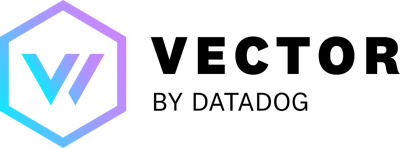
Datadog Projects
Vector is a high-performance observability data pipeline that enables you to collect, transform, and route all of your logs and metrics.

Datadog Projects
The Application Security Threat Emulation Project is designed to emulate web application attacks and threats against the popular vulnerable application "Juice Shop".
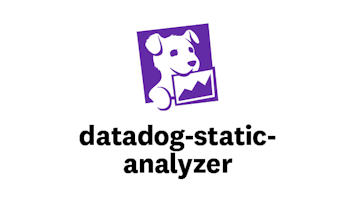
Datadog Projects
datadog-static-analyzer is a static analyzer that analyzes a program's pre-production code to help you identify maintainability issues and security vulnerabilities early in the Software Development Life Cycle
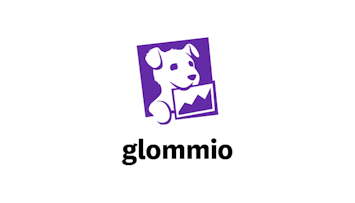
Datadog Projects
Glommio is a Cooperative Thread-per-Core crate for Rust & Linux based on io_uring.It allows one to write asynchronous code that takes advantage of rust async/await, but it doesn't use helper threads anywhere.

Datadog Projects
Manager on top of Cilium's eBPF library. This declarative manager simplifies attaching and detaching eBPF programs by controlling their entire life cycle.

Datadog Projects
GuardDog is a CLI tool that allows to identify malicious PyPI and npm packages. It runs a set of heuristics on the package source code (through Semgrep rules) and on the package metadata.

Datadog Projects
Go implementations of the distributed quantile sketch algorithm [DDSketch](https://www.datadoghq.com/blog/engineering/computing-accurate-percentiles-with-ddsketch/).
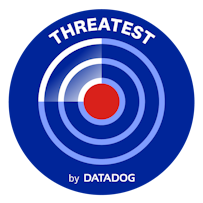
Datadog Projects
Threatest is a CLI and Go framework for testing threat detection end-to-end.

Datadog Projects
A Go implementation of the zstd fast lossless compression algorithm, including APIs for simple compress/decompress and streaming operations.

Datadog Projects
gostackparse parses goroutines stack traces as produced by panic() or debug.Stack() at ~300 MiB/s. Parsing this data can be useful for Goroutine Profiling or analyzing crashes from log files.

Datadog Projects
MKAT is an all-in-one auditing toolkit for identifying common security issues within managed Kubernetes environments. It is focused on Amazon EKS at the moment, and will be extended to other managed Kubernetes environments in the future.

Datadog Projects
Java implementation of the distributed quantile sketch algorithm [DDSketch](https://www.datadoghq.com/blog/engineering/computing-accurate-percentiles-with-ddsketch/).

Datadog Projects
Workload Security Evaluator provides tooling to simulate runtime attacks and test default runtime detections from Datadog Cloud Security Management.
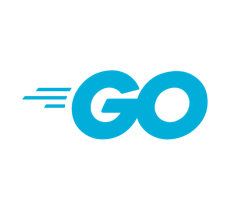
Third Party Projects
Go is an open source programming language that makes it simple to build secure, scalable systems. Go is used heavily at Datadog and our engineers contribute regularly to Go.

Third Party Projects
Kubernetes is an open-source system for automating deployment, scaling, and management of containerized application. Datadog infrastructure runs on dozens of Kubernetes clusters.
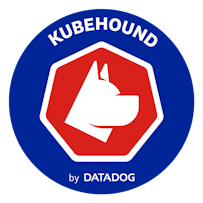
Datadog Projects
KubeHound is a tool to identify and remediate attack paths in Kubernetes cluster, through the use of a graph database.
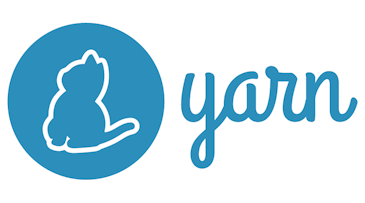
Third Party Projects
Yarn is one of the premier package managers for the modern web, and is leveraged every day by teams all over the world at companies like Google, Facebook, and Datadog.

Third Party Projects
Datadog offers free Datadog accounts to Open Source projects that could benefit from the cloud observability and security platform that Datadog provides. You can learn more about the program and how to apply in the Datadog for Open Source Projects partner program page.

Datadog Projects
Grimoire is a project to help generate cloud audit logs datasets for common attacks.

Third Party Projects
Datadog's dd-trace team developed the popular import-in-the-middle library in order to work around the problem of JavaScript module exports being immutable, and recently donated the library to the Node.js project.

Third Party Projects
Mastodon enhanced its observability by integrating OpenTelemetry and partnering with Datadog.

Third Party Projects
OpenJDK is an open-source Java implementation that powers secure, scalable systems; it is heavily used at Datadog, where our engineers contribute regularly to its improvement.

Datadog Projects
Supply-Chain Firewall is a CLI tool for preventing the installation of vulnerable and malicious open-source packages.

Datadog Projects
Orchestrion is a tool that automatically instruments Go applications at build time.

Third Party Projects
The Python Software Foundation has been using Datadog since 2017. Read about the ways they rely on Datadog to monitor usage, track downloads, and ensure the health of the infrastructure that supports PyPI, their Package Index.

Third Party Projects
Vega is a declarative language to define data visualizations. Vega is heavily used at Datadog and we contribute to it with documentation, code, and governance.

Otel News
January 2026 OpenTelemetry News: Collector releases, OTLP exporter renaming, community proposals, and key events around FOSDEM.